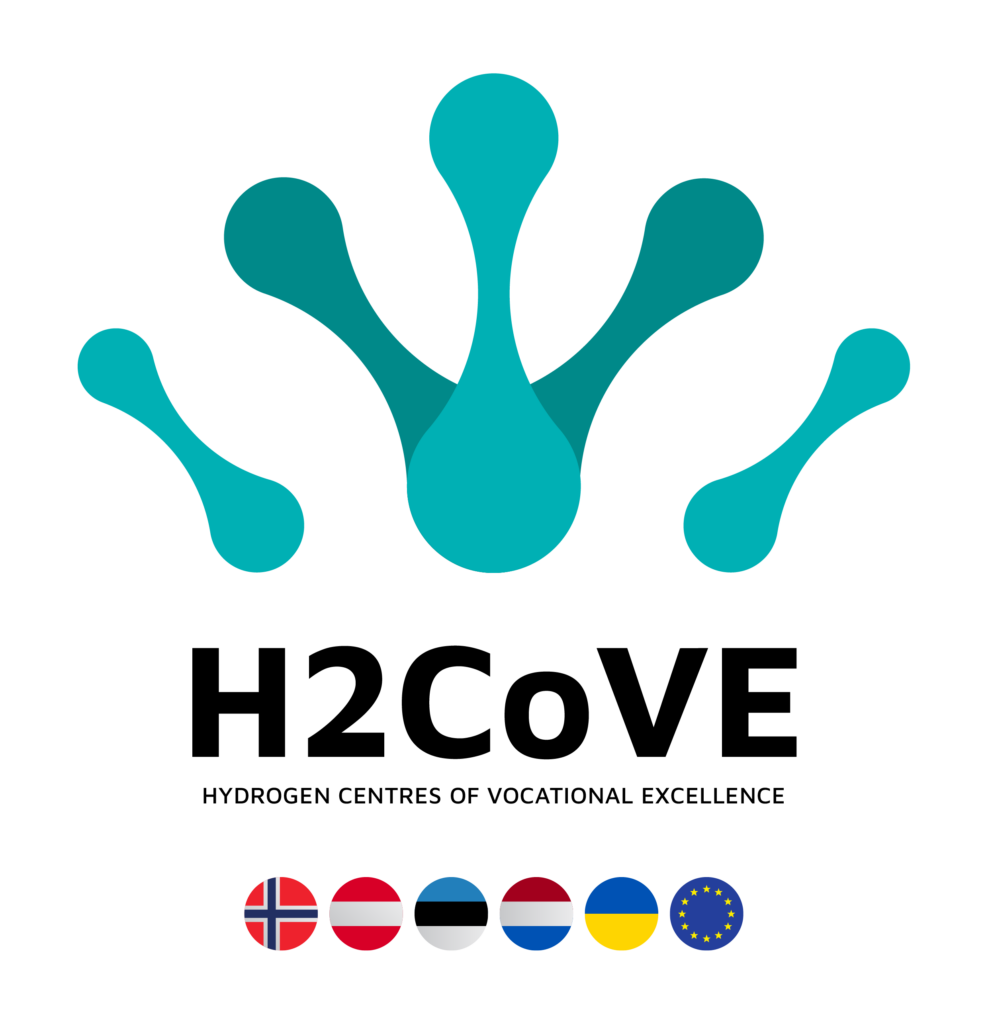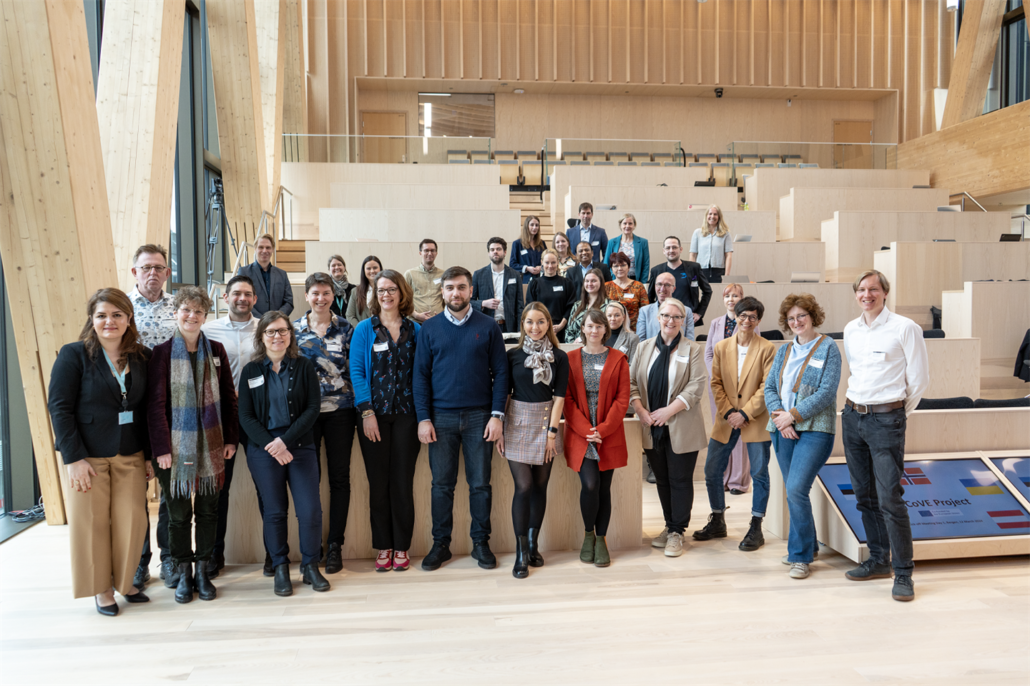Equipping the European labor market with skills for the hydrogen economy.

The main goal of H2CoVE is to equip the European labor market with the necessary professional skills for industries in the hydrogen economy. Five regions; Vestland in Norway, Northern Netherlands, Tyrol in Austria, Estonia, and the Precarpathian region in Ukraine are pooling their knowledge and expertise to build local skills ecosystems.
Investing in knowledge sharing
The need for investments in infrastructure for hydrogen production, storage, and applications is enormous. This also requires well-trained workers. The partner regions have various resources and capabilities that complement each other across the hydrogen value chain. Through collaboration, they aim to increase capacity in all of Europe. Governments need to create the right environment and incentives for businesses to invest and accelerate the hydrogen economy. H2CoVE will contribute to this by:
Result: teachers, students and the private sector increase knowledge
The collaboration, consisting of 27 knowledge institutions across Europe, aims to involve 150 teachers/lecturers from various levels of vocational education in Train-the-Trainer programs and attract approximately 800 stakeholders from the business community. 1000 employees will participate in upskilling and reskilling activities, and 140 students will take part in a specially designed project competition for challenge-based learning. At least 12 projects/bachelor’s/master’s theses will be written on real challenges in the sector.


Duration: February 2024 – February 2028
Total budget of the project: € 3.978.888
Budget ENTRANCE: € 353.652
Partners: 27 knowledge institutions across Europe
Involved professorships: Energy transition – Hydrogen
The future of the transition to sustainable energy.
Developing an innovation roadmap for small-scale wind energy, commissioned by TKI Urban Energy.
Which policy instruments can European cities utilize to promote the implementation of Positive Energy Districts?
How can the Dutch energy market be organized, in order that it joins the changing energy system? This is a central question at the project MODES (Market Organization of the Dutch Energy System).
